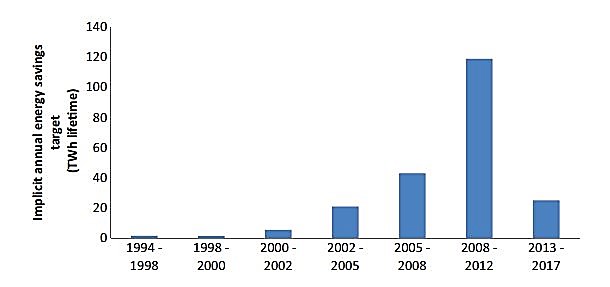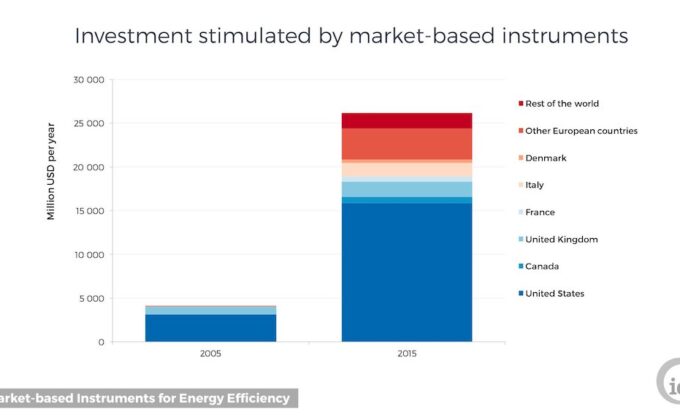
Knowledge Center
We believe that sharing our expertise and collaborations in clean energy policy is how real, effective change happens.
From reports and policy briefs, to webinars and podcasts—RAP advisors have built an extensive collection of resources providing in-depth analysis and practical solutions to today’s energy challenges.
Filter >>
Content Filter:
Policymakers across the globe are searching for solutions to reduce the use of fossil fuels and their associated climate impacts. Attention has focused on the heating sector, which relies heavily on fossil fuels and was responsible for almost 40% of… View Summary +

In this webinar from the International Energy Agency’s User-Centred Energy Systems programme, Dr. Julia Hildermeier and Christos Kolokathis explored three promising practices for EV grid integration: smart pricing, smart technology and smart planning. They also shared policies for accelerating the… View Summary +
We have in Europe today a huge new opportunity to clean up our energy system, advance social justice and address catastrophic climate change. In this fact sheet, we illuminate the path to achieving these goals — carbon revenue recycling. In… View Summary +

The International Energy Agency reported in 2016 that energy efficiency is increasingly understood as a key component of low-carbon energy policy. The European Union encourages Member States to introduce energy efficiency obligation schemes (EEOS) to help meet energy savings objectives. View Summary +

Institutions and practices for power sector planning are the foundation for cost-effective investment and environmental sustainability. The main challenge is to shift the Chinese power sector away from the old model, in which meeting rapid demand growth was the prime consideration,… View Summary +

Energy efficiency plays a critical role in achieving the ambitious carbon reduction goals set out in the Paris Agreement. The International Energy Agency (IEA) created a model scenario, aligned with the Paris Agreement, which indicates that half of global emission… View Summary +
The economics of energy efficiency programmes, including their costs and benefits, have been subject to considerable academic debate lasting well over three decades. However, robust data on the cost-effectiveness of different types of energy efficiency policy instruments is still scarce. View Summary +
EU Member States have been encouraged to introduce energy efficiency obligation schemes (EEOS) to help meet energy saving objectives. As a result, there are now sixteen EU EEOS in existence or planned, compared with just six prior to the introduction of the… View Summary +
Finding ways to unlock more energy efficiency is a priority for countries looking to meet their energy policy goals. Efficiency is central to making progress on decarbonisation and energy security, while also fostering economic and social development. At the… View Summary +

Forecasting, scheduling, and balancing are the foundation for higher penetration renewable electricity systems. Together, they constitute the core processes through which variable renewable generation—wind, solar, and run-of-river hydroelectric—is transmitted over the electricity grid and delivered to consumers. Although forecasting, scheduling,… View Summary +
The International Energy Agency (IEA) and RAP are conducting an in-depth analysis for the G7 on the design of market-based instruments for the delivery of energy efficiency. The study examines market mechanisms and economic instruments, such as auctions and tendering… View Summary +
Pollution control systems in the United States and European Union rely heavily on permitting as a key regulatory vehicle for limiting emissions, coordinating local decisions with national targets, and ensuring compliance. Transparent and consistent operation of environmental permitting systems promote a… View Summary +
Shanghai and Guangdong recently released draft regulations regarding their emissions trading pilot programs. Together with the Bureau of Environment of the Tokyo Metropolitan Government (Yuko Nishida), the US Environmental Protection Agency (Jeremy Schreifels), and the World Resources Institute (Kevin Kennedy… View Summary +
The International Energy Agency (IEA) together with its working partner the Regulatory Assistance Project (RAP) is undertaking a new work programme focused on energy efficiency and energy providers. Formulated under the auspices of the International Partnership on Energy Efficiency Cooperation… View Summary +
In August 2011, the Regulatory Assistance Project officially joined the IEA DSM Programme as a Sponsor. The IEA DSM (Demand-Side Management) Programme is an international collaboration of countries working together to develop and promote opportunities for demand-side management. RAP’s participation… View Summary +

